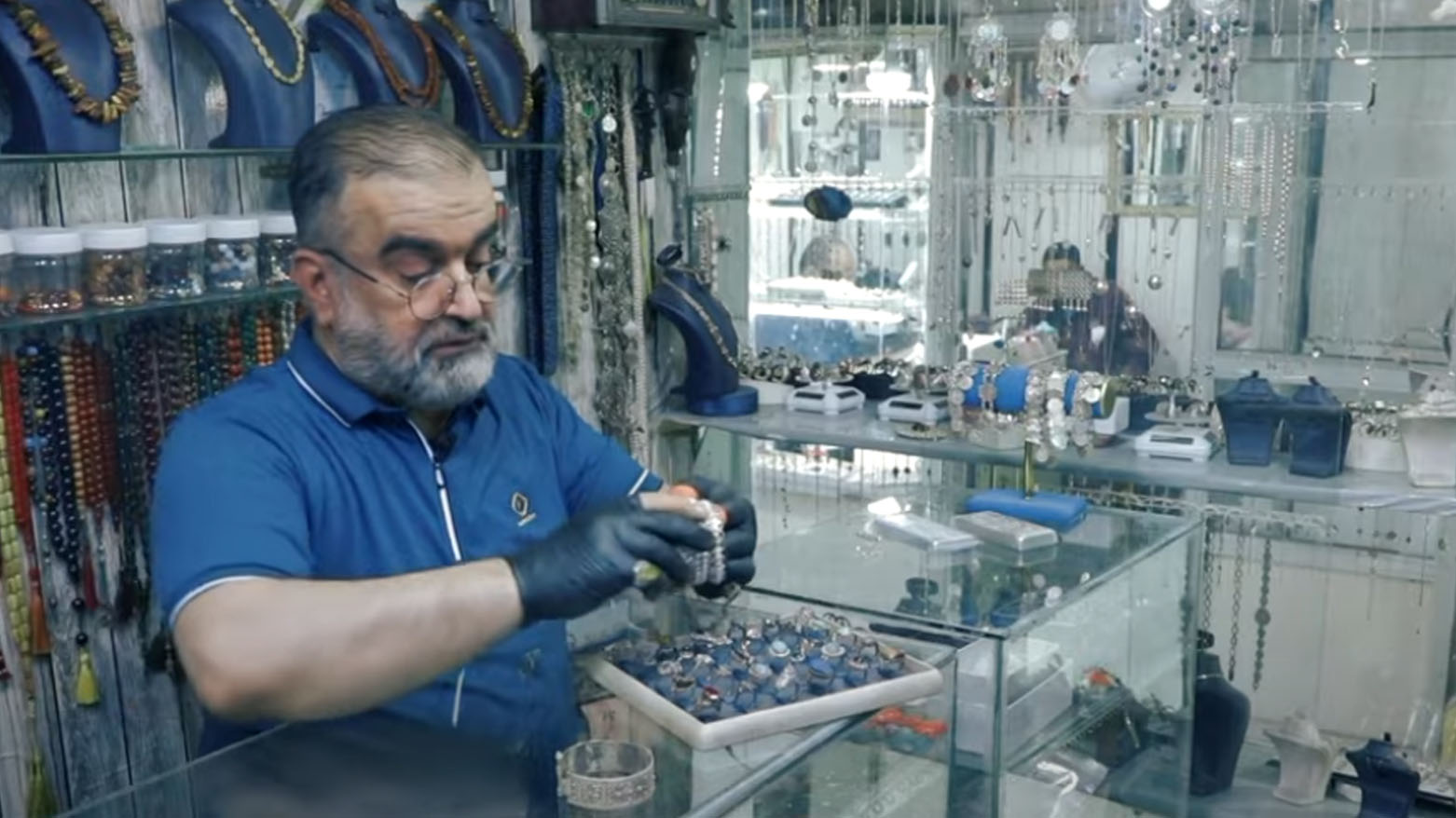Silver's Sparkle: Erbil's Ancient Craft Thrives on Modern Demand
Erbil's ancient silver craft is booming. Artisans in the historic market blend tradition and innovation to meet rising demand from locals and tourists, making silver a popular, affordable alternative to gold and a cherished piece of cultural heritage.

ERBIL (Kurdistan24) – In the heart of Erbil's historic market, the ancient craft of silver-crafting is experiencing a vibrant resurgence, as skilled artisans blend generations of heritage with modern innovation to meet a soaring demand from locals and international tourists alike. The sparkling shops, which have stood for many years as a testament to the city's rich heritage, now bustle with activity, transforming a once-limited trade into a thriving industry that serves as a cultural bridge to the world.
Wandering through the old market's alleys, the Kurdistan24 report's camera captured scenes of a silversmith engrossed in his work, using traditional tools and an open flame to handcraft a silver piece. The Kurdish word for silver, "zîv," stands out, highlighting the metal's deep-rooted place in the local heritage. This craft, once the domain of just a few, has evolved significantly over the years.
Kawa Omar, a silversmithing specialist, spoke to Kurdistan24 about this evolution. "In the past, silver-making was limited and confined to only men's rings. Only two people worked in this profession: a Christian named Matti, and my uncle, Anwar," he explained. "Today, the demand for silver has increased significantly, especially from foreigners. Customers now request rings and Kurdish clothing adorned with silver, and we make them to order."
To meet this growing demand, the market offers a diverse range of products. "We have two types of merchandise," Kawa Omar said. "There are products we handcraft, like rings and some traditional Kurdish accessories that customers prefer. Then there are ready-made goods we import from Turkey and Italy." While he noted that "Italian craftsmanship is known for its beauty and precision," he confirmed that the silver purity is similar in both countries.
The demand for these handcrafted pieces, as well as for ready-made items, peaks during cultural celebrations. "Currently, silver is very popular, especially during the Nowruz season when people wear Kurdish clothes and request jewelry to match," Omar continued.
"We even work during the holiday due to high demand." He also pointed to a key economic driver behind silver's popularity, explaining that "today, silver is a suitable alternative to gold, which has become very expensive. The price of silver remains affordable for everyone and depends partly on the cost of the manual labor."
The appeal of Erbil's silver extends far beyond the local community, captivating international visitors. "Tourists from Europe particularly prefer silver, as gold is not widely worn there, while silver with handmade engravings is very popular among French and Italian visitors," Kawa Omar confirmed.
This rising popularity has also signaled a shift in local customs, a change Omar illustrated with a charming story. "I remember when a man came to get married and asked us to create a complete silver set for his bride instead of gold—from the ring to the necklace, earrings, and belt," he recalled. "That was rare in the past, but today it has become commonplace!"
As detailed in the report prepared by Kurdistan24 in Erbil, the city's market today is not just a place to buy and sell silver, but a living space that preserves craft traditions renewed with each generation, reflecting a dynamic blend of heritage and evolution.
